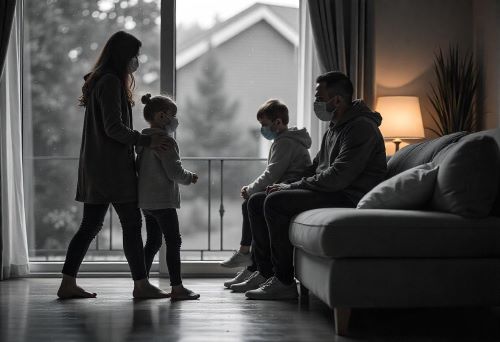The emergence of a new Omicron subvariant of Covid-19, known as Nimbus, has sparked interest and concern among health professionals and the general public. While some anecdotal symptoms like “razor-blade” throat have drawn attention, experts have urged the public not to panic. Here’s a detailed look at what we know so far.

Overview of the Nimbus Variant
➤ What is the Nimbus Covid Variant?
- Nimbus is a newly identified subvariant of Omicron, part of the SARS-CoV-2 virus.
- It has been reported in a few countries and is slowly being tracked by WHO and local health authorities.
- Clinical observations suggest that Nimbus may be more transmissible than previous strains but not more severe.
Is Nimbus a Cause for Panic?
➤ Severity Remains Low
- According to the World Health Organization (WHO), the risk posed by Nimbus is low.
- It is not life-threatening unless a person already has pre-existing heart or lung issues.
- There is no data suggesting Nimbus is more harmful than other Omicron variants like XBB or BA.2.
➤ More Contagious, Not More Dangerous
- While transmission rates are slightly higher, the overall clinical severity remains low.
- Most cases report mild to moderate symptoms.
Symptoms of the Nimbus Variant
➤ Razor-Blade Throat – A Unique Complaint
One of the most talked-about symptoms is the “razor-blade” throat. Patients report a sharp, painful sore throat that:
- Feels like swallowing glass or razor blades
- Makes it difficult to eat or drink
- Is not unique to Nimbus, and could also be caused by other viral infections
➤ Other Common Symptoms of Omicron Subvariants
- Mild fever or body ache
- Dry cough
- Sneezing and nasal congestion
- Nausea, vomiting, or diarrhoea in some cases
- Fatigue and headache
When to Get Tested for Covid-19
➤ Testing Guidelines for Nimbus Symptoms
Doctors advise a Covid-19 test in the following scenarios:
- If symptoms persist for more than two days
- If you are unvaccinated
- If you are in close contact with a confirmed case

➤ Lab Testing Recommended Over Home Kits
- Visit a certified testing lab for more accurate results.
- Avoid relying solely on home test kits as they may not detect newer variants accurately.
What to Do If You Have Symptoms?
➤ Treatment and Home Remedies
Doctors recommend home isolation and supportive treatment similar to other viral infections:
- Drink plenty of fluids
- Rest well
- Take only doctor-prescribed antiviral medications
- Avoid self-medication, especially antibiotics
➤ Consult a Doctor
- Throat pain may also be due to bacterial infections, such as strep throat.
- A medical consultation can help rule out other conditions.
Covid-19 Vaccine: Your Best Protection
➤ Importance of Vaccination Against Nimbus Variant
- According to WHO, Covid-19 vaccines remain effective against Omicron and its subvariants.
- Even if vaccinated individuals get infected, the illness is usually milder and less likely to cause hospitalization.
➤ What Does 80% Efficacy Mean?
- An 80% efficacy rate does not mean the vaccine only works 80% of the time.
- It means there are 80% fewer cases among vaccinated people than in the unvaccinated group.
Comparison with Other Viral Infections
➤ Similarities with Cold and Stomach Flu
Other common viral infections also show overlapping symptoms:
- Rhinovirus – Causes the common cold, with runny nose and cough
- Norovirus – Causes stomach flu, leading to vomiting and diarrhoea
It is therefore important not to assume every sore throat is Covid-19.
Doctors’ Opinion on Nimbus Variant
➤ Treat Like Any Other Viral Infection
Medical experts suggest the public should:
- Treat symptoms as mild upper respiratory infections
- Avoid panic buying of medicines
- Focus on hydration, rest, and nutrition
➤ No Need for Mass Panic
- “This is not a dangerous variant. The symptoms are mostly manageable at home,” said a senior doctor from AIIMS, New Delhi.
- Proper hygiene, mask usage in crowded places, and vaccinations are still the best practices.
Precautions and Prevention
➤ What You Should Do
- Wear masks in indoor or poorly ventilated areas
- Sanitize hands regularly
- Maintain social distancing in crowded spaces
- Monitor symptoms and isolate if sick
- Avoid crowded places if immunocompromised or elderly

Final Thoughts: Stay Alert, Not Alarmed
The Nimbus Covid variant should not cause widespread alarm. With mild symptoms, good recovery rates, and low hospitalisation, it is considered less severe than previous variants. However, staying informed, following medical advice, and getting vaccinated are key to staying safe.





